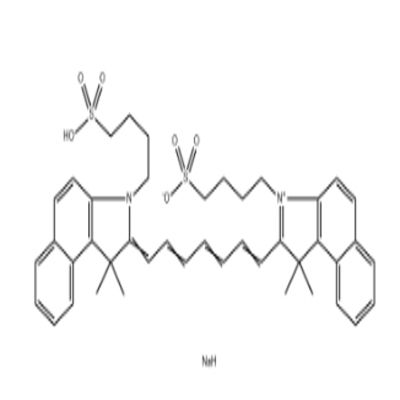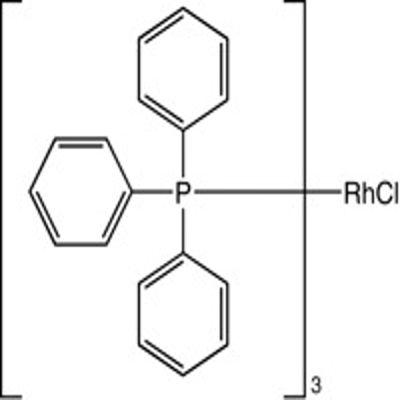Ignite "cold" tumors to reduce side effects! New IL-12 preparation to amplify PD-1 antibody efficacy
-
Last Update: 2020-06-15
-
Source: Internet
-
Author: User
Search more information of high quality chemicals, good prices and reliable suppliers, visit
www.echemi.com
TextsOn May 14, two experts from the University of Dusseldorf School of Medicine in Germany published an article in Nature Biomedical Engineering to explore a previous study by Jeffrey Hubbell of the University of Chicago and others that the modified IL-12 formulation, which binds collagen to mice with "cold" tumors (tumor-immersed T-cell-density tumors), can effectively remove "cold" tumors while reducing immune-related side effects, especially when combined with immunoastapal blocking therapy"Hot tumors" relative to "cold tumors" contain high levels of tumor-immersed lymphocytes that target and kill tumor cells through antigen dependence mechanismsHowever, long-term antigen exposure can lead to T-cell depletion, which means that T-cells become dysfunctional and lose their amplification potentialIn addition, tumors reduce the expression of immune dominant antigens to avoid detection by lymphocytes, and tumor cells enhance the expression of co-inhibitormolecules (by activating inhibitory receptors in immune cells, such as PD-1, which causes T-cell depletion) and make it more difficult for the immune system to fight tumorsPrevious studies have revealed that in the context of infection and cancer, the immune checkpoint pathway triggers T-cell depletion, and immune checkpoint blocking has proven to be a strategy for restoring T-cell function in a variety of tumorsHowever, while blocking PD-L1 or CTLA-4 in tumor patients restores immune cell reactivity in the tumor microenvironment, it has limited effect in so-called "cold" tumorsOther alternatives can enhance the local immune response of tumorsIn particular, cytokines such as IL-12 activate cytotoxic lymphocytes and NK cells and promote tumor-specific immune responsesHowever, while IL-12 can increase the production of IFN-mon in NK and T cells, whole-body administration of IFN-gamma or IL-12 is not sufficient to support the response of anti-tumor T cells and may cause serious immune-related side effects such as cytokine storm syndrome and liver damageTherefore, the unmodified IL-12 of the whole body administration has obvious limitations, but these limitations can be addressed by targeting IL-12 to specific cells or organs that support only its beneficial effectsA study published April 13 in the journal Nature Biomedical Engineering showed that IL-12's collagen binding (CBD-12) fusion (CBD- 12) with an angioplasty-targeted tumor exposed collagen in tumors was effective in promoting local immunity activation, while reducing immune-related side effects and without extensive systemic effectsIntravenous CBD-IL-12 in mouse tumor models can promote the complete regeneration of drug-resistant breast tumors on immunocheckpoints and synergize with immunocheckpoint blocking to eradicate large melanomas that have formedThe study, led by Hubbell, actually used abnormally high collagen exposure in tumor extracellular matrix estopsy and rapidly growing tumor cells in newborn blood vesselsIn order to achieve the tumor collagen targeting of IL-12, IL-12 is combined with the CBD of the VWF A3 domain through G3S (a flexible peptide connector), thus enabling IL-12 to function locallyStudies have shown that CBD-IL-12 fusion proteinretains retain binding and bioactivity with collagen, and have a lower serum half-life of therapeutic proteins than unmodified IL-12It is worth noting that CBD-IL-12 is enriched in tumor tissue and induces tumor-specific production of IFN-gamma, which is the key medium for IL-12 antitumor activity (below) They also observed a significant decline in immuno "cold" tumors after individual injections of CBD-IL-12 in mouse models of melanoma or breast cancer, or joint injections of CBD-IL-12 and anti-PD-1 antibodies in melanoma mouse models The following is: In the B16F10 mouse melanoma model, a single intravenous CBD-IL-12 allowed 10 of the 15 treated mice to completely relieve (67%), reducing the tumor load compared to unmodified IL-12 In the poor immunogenicity OF EMT6 mouse breast cancer model (typical cold tumor), CBD-IL-12 administration resulted in an increase in CD8 plus cytotoxic T cells immersed in the tumor matrix, which increased the production of IFN-pyridine and other typical IL-12 target factors such as CXCL10 and IL-1 beta Thirteen of the 15 treated mice were completely remissioned (87%), while unmodified IL-12 resulted in clinical remission (40%) in only 6 of the 15 treated mice The researchers also used CBD-IL-12 and immune checkpoint blocking to combine treatments for B16F10 or BrafV600E Ptenfl/fl melanoma mice Although single immunocheckpoint inhibitors or CBD-IL-12 have no lasting effect on established tumors, the combination of the two drugs can improve tumor control CBD-IL-12-induced immune activation was limited to tumors, with limited systemic side effects, as the level of circulating IFN-stomp (the main factor leading to immune-related side effects) in mice after BEING injected with CBD-IL-12 was lower than that of unmodified IL-12 CBD-IL-12 did not cause weight loss in the treated mice, nor did there show any significant signs of lung, liver or kidney tissue damage It is worth noting that the whole body application CBD-IL-12 has the potential to target metastasized tumor sites compared to the endoblastal injection-targeted IL-12 fusion protein (Lumican-IL-12) THE EFFICACY OF CBD-IL-12 DEPENDS ON THE PRESENCE OF COLLAGEN EXPOSED TO TUMOR TISSUE Therefore, the applicability of CBD-IL-12 therapy to human cancer requires further study to determine whether collagen binding is replicable In addition, the biological distribution of CBD-IL-12 should be studied in depth to prevent T-cells and antigen-presentation cells from being raised (and possibly activated) in healthy tissues where collagen may be present, which may lead to autoimmune immunity Due to the targeted NATURE of CBD-IL-12, the benefits of intravenous applications are obvious, especially when targeting tumors that he cannot reach Moreover, the synergy between CBD-IL-12 and immunocheckpoint inhibitors in blocking low-sensitivity tumors at immune checkpoints can significantly broaden the scope of application of this strategy Two experts at the University of Dusseldorf University in Germany said Hubbell and colleagues showed an increase in the increase in the post-INJECTION CBD-IL-12 chemofactor, and that future work should shed light on how CBD-IL-12 promotes the collection of T cells into tumors and describes the main immune cell subgroups involved in its treatment Since immunotargeted therapy is ineffective for a large proportion of cancer patients, the ability to reverse the immunosuppressive microenvironment in "cold" tumors will have a significant clinical impact Hubbell and colleagues' collagen targeting strategies could be an important complement to immunotherapy.
This article is an English version of an article which is originally in the Chinese language on echemi.com and is provided for information purposes only.
This website makes no representation or warranty of any kind, either expressed or implied, as to the accuracy, completeness ownership or reliability of
the article or any translations thereof. If you have any concerns or complaints relating to the article, please send an email, providing a detailed
description of the concern or complaint, to
service@echemi.com. A staff member will contact you within 5 working days. Once verified, infringing content
will be removed immediately.







